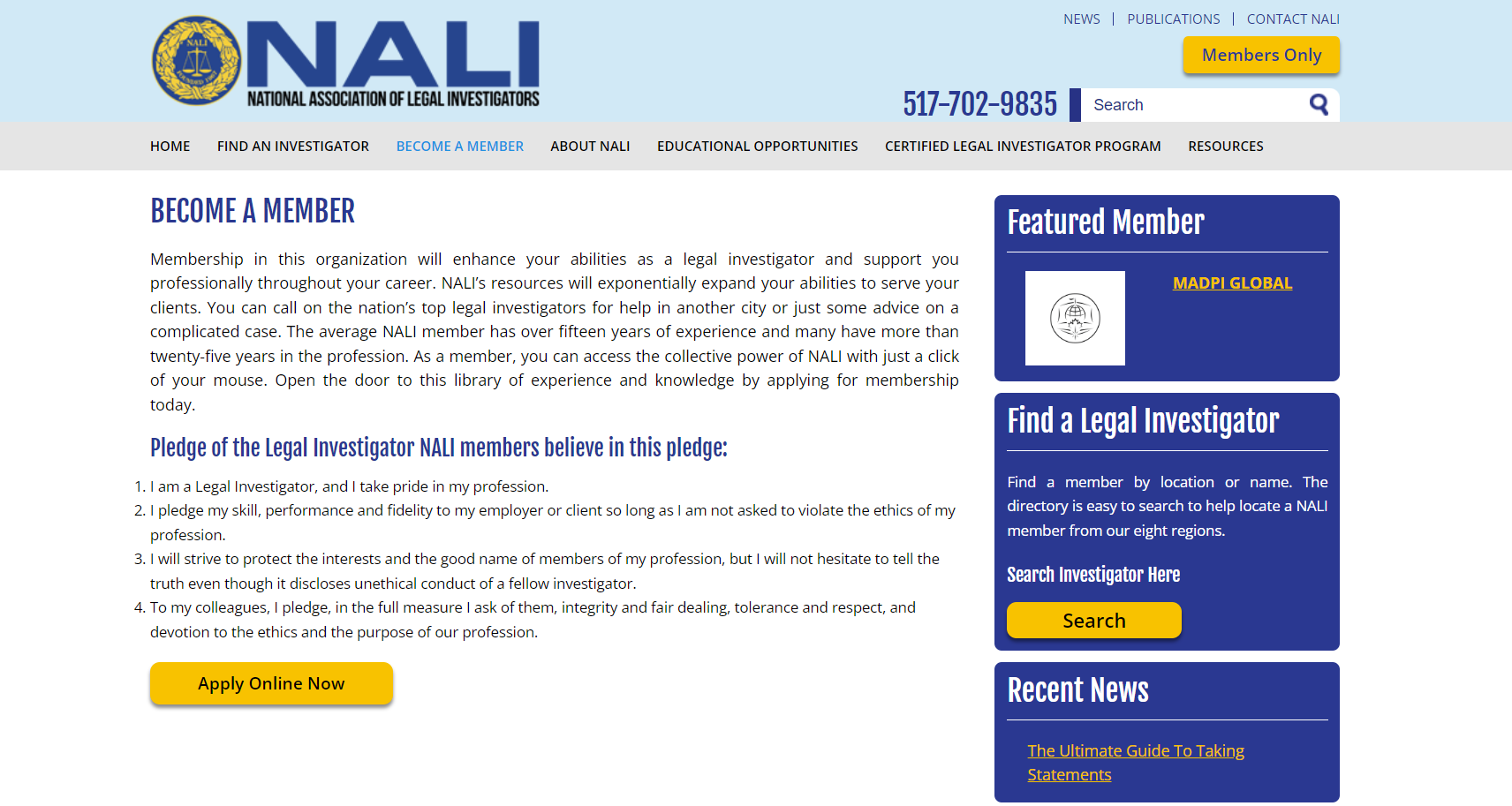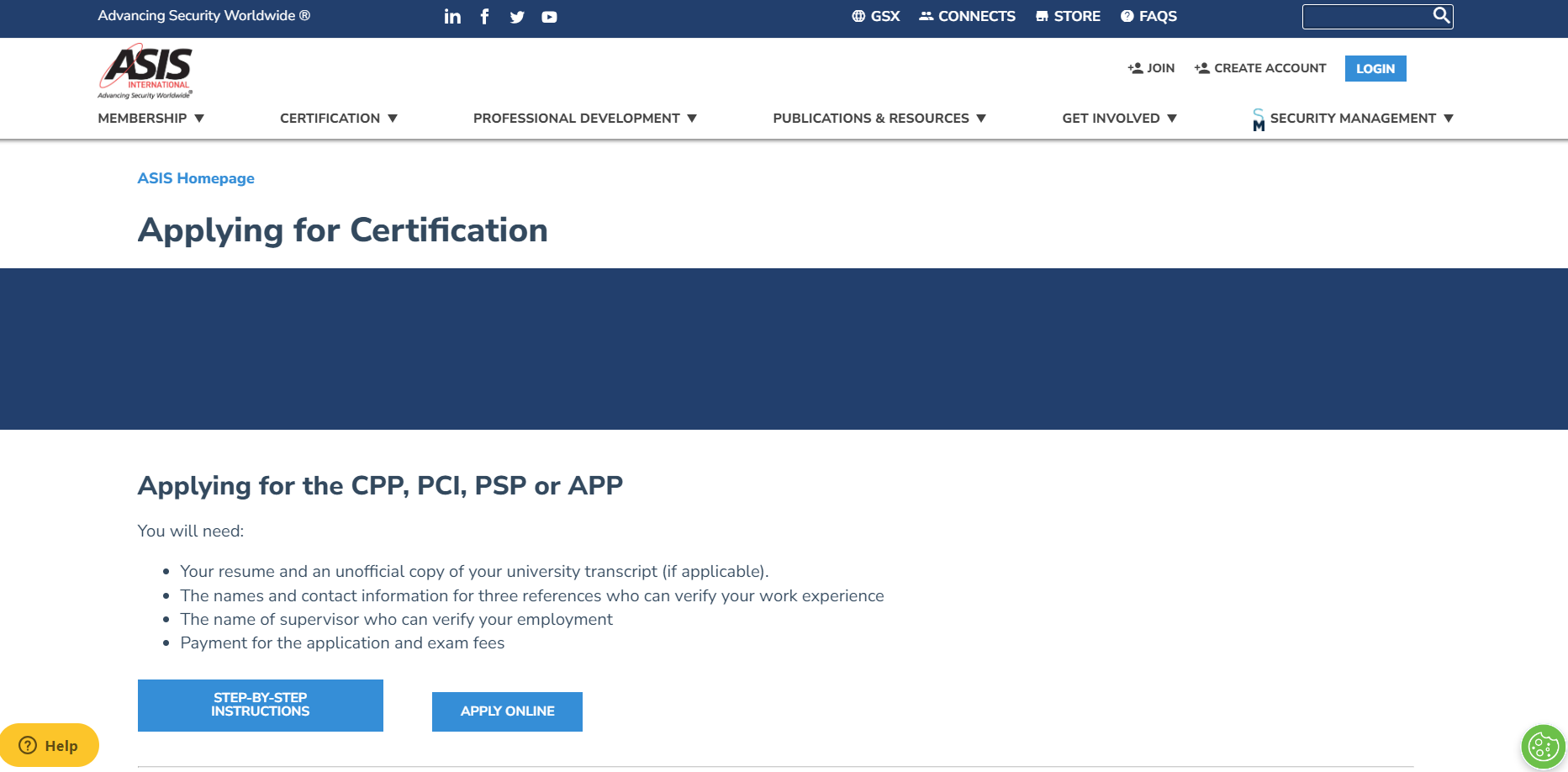
Suppose you’ve always been intrigued by the world of investigations and have a knack for unraveling mysteries. In that case, a career as a private investigator might be the perfect fit for you in Delaware. Private investigators play a crucial role in assisting individuals, businesses, and even law enforcement agencies in gathering information, uncovering facts, and solving cases. In addition to learning the ins and outs of investigation techniques, it is important to understand the legal aspects of running your own private investigation business.
Establishing an LLC in Delaware is popular for many private investigators as it provides legal protection and facilitates smooth business operations. This article will outline the steps you need to take to Become a Licensed Private Investigator in Delaware.
Webinarcare Editorial Team will help you gain knowledge through thorough research and market study. Before becoming a private investigator in Delaware, all the steps in this article must guide you.
On this page, you’ll learn about the following:
What is a Private investigator?
A private investigator in Delaware is a professional who conducts investigations, gathers information, and performs surveillance for individuals, businesses, and legal professionals. In Delaware, private investigators must be licensed by the Delaware State Police Professional Licensing to operate within Delaware legally. They often work on various cases, including civil matters, insurance fraud, background checks, infidelity, missing persons, etc. These professionals use their skills and expertise to collect evidence, analyze information, and provide their clients with valuable insights to help them make informed decisions or resolve disputes.
Embarking on a journey to become a private investigator in Delaware is like entering a maze of possibilities where every corner holds a potential clue. As you uncover the secrets tucked away in the shadows, remember to secure your own path by learning how to start an LLC in Delaware. Establishing a legal entity shields you from liabilities and empowers you to navigate the investigative landscape with professionalism.
– WEBINARCARE EDITORIAL TEAM
How to Become a Private Investigator in Delaware
Suppose you’re considering becoming a private investigator in Delaware. In that case, it’s essential to understand the steps and requirements involved in obtaining your license and starting your professional journey. This step-by-step guide will walk you through becoming a private investigator in Delaware.
Step 1: Research The Requirements
Each state has its own set of requirements and regulations for becoming a licensed private investigator. The agency responsible for regulating private investigators in Delaware is the Delaware State Police Professional Licensing. Familiarizing yourself with the specific requirements for obtaining a private investigator license in Delaware is important.
Some common requirements for obtaining a PI license in Delaware include:
- Age: Delaware requires individuals to be 18 or 21 to apply for a Private Investigator license.
- Citizenship: Applicants must be U.S. citizens or legal residents.
- Education: Delaware requires a high school diploma or GED, while others may require a degree in criminal justice or a related field.
- Experience: Delaware requires years of experience in law enforcement, security, or other related fields.
- Background Check: Applicants will likely need to pass a background check, which may include fingerprinting and a criminal history check.
- Licensing Exam: Delaware requires applicants to pass a licensing exam that tests their knowledge of state laws, regulations, and general investigative techniques.
Becoming a private investigator is ideal if you want to start an LLC for your security company in Delaware. We recommend these LLC Formation Services in Delaware if you plan to form one.
Step 2: Obtain Education and Experience
As mentioned earlier, Delaware requires a certain level of education and experience to become a licensed private investigator. There are several educational paths you can pursue to prepare for a career as a private investigator, including:
- Degree Programs: Some Delaware colleges and universities offer associate’s or bachelor’s degree programs in criminal justice, forensic science, or a related field. These programs typically cover criminal law, investigation techniques, and crime scene analysis.
- Certificate Programs: Delaware community colleges and vocational schools offer certificate programs in private investigation or a related field. These programs generally take less time to complete than a degree program and focus on specific skills and knowledge needed for a career in private investigation.
- Online Courses: Numerous online courses and training programs cover various aspects of private investigation. These courses can be a convenient and affordable way to gain knowledge and skills in the field.
In addition to formal education, gaining practical experience in a related field can be invaluable for aspiring private investigators. Some possible avenues for gaining relevant experience include:
- Law Enforcement: Working in law enforcement, such as a police officer or detective, can provide valuable experience in investigation and surveillance techniques.
- Military Service: Military personnel, particularly those in intelligence or security roles, often develop skills that can be transferred to a career as a private investigator.
- Security Work: Working as a security guard or in corporate security can provide experience in surveillance, risk assessment, and incident response.
- Legal Field: Paralegals and legal assistants often conduct research and investigations for attorneys, which can provide a foundation for a career as a PI.
Here is the breakdown of the education and practical experience in becoming a licensed private investigator in Delaware.
| Education | Experience |
| Degree Programs | Law Enforcement |
| Certificate Programs | Military Service |
| Online Courses | Security Work |
| Legal Field |
Step 3: Apply For a Private Investigator License
Once you have met the education and experience requirements in Delaware, you can begin applying for a private investigator license in Delaware. This typically involves applying to the Delaware State Police Professional Licensing and any required documentation, fees, and proof of insurance.
In Delaware, the application process may include the following steps:
1. Complete the Private Investigator License Application
Obtain and complete the PI license application from the Delaware State Police Professional Licensing. Be sure to provide accurate and complete information, as any discrepancies could result in delays or denial of your application.
2. Submit the Required Documentation
Along with your completed application, you must submit various documents, such as proof of education and experience, a copy of your driver’s license, and any required affidavits or forms.
3. Pay Application and Licensing Fees
There may be fees associated with the application and licensing process in Delaware. Be sure to include these fees when submitting your application. The usual fee for the application and licensing process for the Delaware private investigator costs $260.
4. Obtain Liability Insurance
Delaware doesn’t require obtaining liability insurance when you become a Delaware private investigator, but it is safe for you to have it.
5. Pass the Licensing Exam
If required in Delaware, you must pass a licensing exam that tests your knowledge of state laws, regulations, and general investigative techniques.
6. Background Check and Fingerprinting
As part of the application process, you will likely need to undergo a background check and submit fingerprints to the Delaware State Police Professional Licensing.
Step 4: Maintain Your Private Investigator License
Once you have obtained your private investigator license in Delaware, it is important to maintain your license in good standing. This may involve completing continuing education requirements, renewing your license periodically, and adhering to any regulations and ethical standards set forth by the Delaware State Police Professional Licensing. When you become a fully-fledged Delaware private investigator, it is best to consider other certifications for your career development.
Below are two professional credential options that private investigators can pursue.
Certified Legal Investigator
The Certified Legal Investigator (CLI)® is a professional certification program offered by the National Association of Legal Investigators (NALI). It is designed for private investigators who specialize in legal investigations and wish to demonstrate proficiency and expertise in the field.

To become a Certified Legal Investigator (CLI)®, candidates must meet certain eligibility requirements, including having a minimum of five years of investigative experience and a certain number of those years working on legal investigations. Candidates must also pass a written examination that covers topics such as legal ethics, civil and criminal law, evidence collection and preservation, and witness interviews.
By earning the CLI certification, investigators show they have high competency and professionalism in legal investigations and adhere to the highest standards of ethics and integrity. The legal community recognizes the certification and can help investigators gain credibility and recognition in the field.
You can visit NALI’s CLI requirement page for the most up-to-date certification requirements.
Professional Certified Investigator (PCI)®
The Professional Certified Investigator (PCI)® is a professional certification program offered by ASIS International, a global association for security management professionals. The certification is designed for private investigators and security professionals conducting corporate, government, or non-profit investigations.

To become a Professional Certified Investigator (PCI)®, candidates must meet certain eligibility requirements, including having a minimum of five years of investigative experience and a certain number of those years working in a supervisory or management role. Candidates must also pass a written examination that covers topics such as investigation planning, case management, evidence collection and preservation, and legal and ethical considerations.
By earning the PCI certification, investigators show they have high competency and professionalism when conducting investigations and adhere to the highest standards of ethics and integrity. The certification is recognized by employers, clients, and industry peers and can help investigators advance their careers and gain credibility in the field.
You can visit ASIS’ eligibility requirements page for the most up-to-date information regarding PCI certification requirements.
Recommended: Begin your journey to become a private investigator with the first bold step by using Legalzoom’s LLC formation services. When you start an LLC with Legalzoom, you’re not just making a business transaction, you’re carving out a future in the security industry. Even making your own security company, it is best to hire an LLC services. That’s why we recommend –
– LegalZoom – ($0 + State Filling Fees)
How Much Does a Private Investigator Make?
The salary of a private investigator varies based on experience, location, and type of work. According to the Bureau of Labor Statistics, the average annual salary of a private investigator in the United States is $50,510.
FAQs
Also Read
- Become a Private Investigator in Alabama
- Become a Private Investigator in Alaska
- Become a Private Investigator in Arizona
- Become a Private Investigator in Arkansas
- Become a Private Investigator in California
- Become a Private Investigator in Colorado
- Become a Private Investigator in Connecticut
- Become a Private Investigator in DC
- Become a Private Investigator in Delaware
- Become a Private Investigator in Florida
- Become a Private Investigator in Georgia
- Become a Private Investigator in Hawaii
- Become a Private Investigator in Idaho
- Become a Private Investigator in Illinois
- Become a Private Investigator in Indiana
- Become a Private Investigator in Iowa
- Become a Private Investigator in Kansas
- Become a Private Investigator in Kentucky
- Become a Private Investigator in Louisiana
- Become a Private Investigator in Maine
- Become a Private Investigator in Maryland
- Become a Private Investigator in Massachusetts
- Become a Private Investigator in Michigan
- Become a Private Investigator in Minnesota
- Become a Private Investigator in Mississippi
- Become a Private Investigator in Missouri
- Become a Private Investigator in Montana
- Become a Private Investigator in Nebraska
- Become a Private Investigator in Nevada
- Become a Private Investigator in New Hampshire
- Become a Private Investigator in New Jersey
- Become a Private Investigator in New Mexico
- Become a Private Investigator in New York
- Become a Private Investigator in North Carolina
- Become a Private Investigator in North Dakota
- Become a Private Investigator in Ohio
- Become a Private Investigator in Oklahoma
- Become a Private Investigator in Oregon
- Become a Private Investigator in Pennsylvania
- Become a Private Investigator in Rhode Island
- Become a Private Investigator in South Carolina
- Become a Private Investigator in South Dakota
- Become a Private Investigator in Tennessee
- Become a Private Investigator in Texas
- Become a Private Investigator in Utah
- Become a Private Investigator in Vermont
- Become a Private Investigator in Virginia
- Become a Private Investigator in Washington
- Become a Private Investigator in West Virginia
- Become a Private Investigator in Wisconsin
- Become a Private Investigator in Wyoming
How to Save Money While Starting a Becoming Private Investigator in Delaware
One of the first steps to saving money as a private investigator in Delaware is to carefully evaluate your budget and identify areas where you can cut costs. This may involve making sacrifices in terms of your initial startup expenses, such as opting for used or refurbished equipment rather than splurging on brand-new gadgets. By being mindful of your spending and prioritizing necessary purchases over luxury items, you can ensure that your finances are being put to good use.
Another way to save money as a private investigator in Delaware is to leverage your existing network and resources. Instead of shelling out money for expensive advertising or marketing campaigns, consider reaching out to friends, family, and former colleagues to spread the word about your services. Referrals and word-of-mouth recommendations can be invaluable in attracting new clients without the need for costly promotional efforts.
Additionally, as a private investigator, it’s important to be resourceful and creative in your approach to gathering information and evidence. Instead of relying solely on expensive surveillance equipment or high-tech gadgets, consider using more affordable alternatives such as secure online databases, open-source intelligence tools, or free public records resources. By thinking outside the box and exploring cost-effective investigative techniques, you can save money while still delivering results for your clients.
When it comes to managing your finances as a private investigator in Delaware, it’s also important to prioritize regulatory compliance and ethical standards. Violating laws or engaging in unethical behavior can not only damage your reputation but also lead to costly legal repercussions. By staying up-to-date on the latest laws and regulations governing private investigation in Delaware and maintaining a strong commitment to ethical conduct, you can avoid fines, penalties, and potential lawsuits that could drain your financial resources.
In conclusion, while starting a career as a private investigator in Delaware may require a certain level of financial investment, there are plenty of ways to save money and build a successful business on a budget. By carefully managing your expenses, leveraging your existing network and resources, being resourceful in your investigative approach, and prioritizing regulatory compliance and ethical standards, you can set yourself up for long-term success without breaking the bank.
Conclusion
Becoming a licensed private investigator in Delaware requires meeting specific education and experience requirements, passing a licensing exam, and obtaining a PI license from the Delaware State Police Professional Licensing. By following the steps outlined in this article, you can be well on your way to a rewarding career as a private investigator in Delaware.

